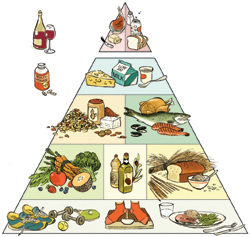Since Hypnosis Weight Loss is a cooperative process, that means, you, and the practitioner of your choice, need to come up with an agreed upon plan.
This involves lots of discussions and a deep level of mutual understanding.
For examle, your Hypnosis Weight Loss expert/therapist may ask you questions such as, what kind of medications you are currently taking, or, how much time you can be dedicated in this Hypnosis Weight Loss effort, what your habits are concerning eating, what type of eating plan you have for reducing the excess weight, etc..
One thing though, keep this in mind that, you’d be honest and straightforard upfront. If, say, you are planning on a vegetarian lifestyle and your practitioner is giving hypnosis weight loss suggestions including having lean cuts of meat, it may be counterproductive. So be sure to let your therapist know about the lifestyle you are going to choose.


With all pertinent information in hand, your hypnotherapist now can design and implement a hypnosis weight loss program just for YOU, and guide you through in the entire process. All you need is practice, practice and practice. For the majority of people walking into Hypnosis Weight Loss clinic, while working closely with their therapists , the program works pretty well. But everybody’s situation is different so you need to talk upfront with your therapists, and the results could vary to some extent. But if you really wowrk towards it, you should see the improvements down the road.
I hope the above info can help you in achieving your weigh loss goal in a cost-effective way.
Category: hypnosis weight loss
Hypnosis and Weight Loss
Self-imposed restrictive diets that produce quick and dramatic results have a tendency to boomerang with a subsequent weight gain. Instead of merely a diet or exercise plan for a set number of weeks, permanent weight loss occurs only with long-term lifestyle changes. According to many people, hypnosis can help you make those changes, quickly and more easily than you ever imagined possible.
Hypnosis refers to a procedure that induces a sleep like state in which the subject acts only on external suggestions. The rationale behind hypnotherapy is that the mind and body are intimately interlinked and influencing one never fails to affect the other. If you suggest to the subconscious mind that the body is free of pain or disease, it will actually bring about that change. In a hypnotic state, you are awake and alert, but you tune out most of the stimuli around you and focus intently on the subject at hand, to the near exclusion of any other thought.
Overeating often occurs because of the cravings and impulses we have about certain foods, on certain occasions. By reeducating the part of your brain responsible for creating cravings and impulses, hypnosis is believed to give you back choice in what you eat.
In a typical hypnotherapy weight loss session, you are first put into a relaxed state. You feel that tingly feeling like you are floating on air. It doesn’t feel heavy, and you feel like you can’t even move because you can’t even lift your finger all the way. This is also where you will start moving into the hypnotic trance progressively using imagery, non-verbal induction, or verbal induction, depending on which training the therapist actually has. Then you go through a deep breathing technique which allows you to go into a deeper level of trance. The next thing after that is what is known as the suggestion phase. That is where the therapist tunes into the food trap that gets in the way of your weight loss, be it sugar, comfort eating, boredom eating, or TV snacks (“Imagine your favorite apple pie covered with flies.”) The final step is awakening, where you will be brought out of hypnosis slowly.
Since hypnotism does not involve drugs, it is touted as natural and risk-free by many advertisers on the Internet. Critics argue, however, that many of the claims about weight loss through hypnosis are overly optimistic at best and openly deceptive at worst.
